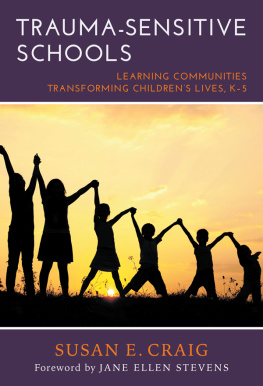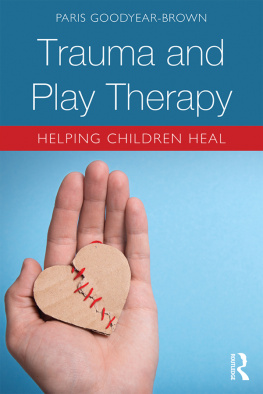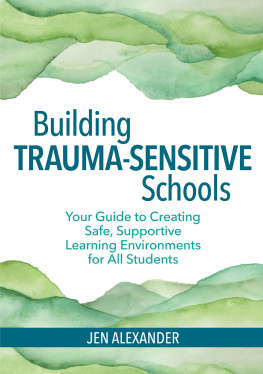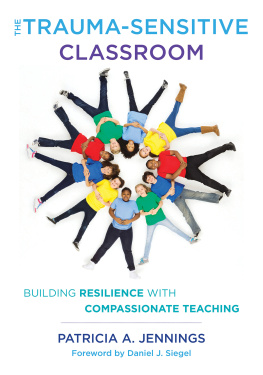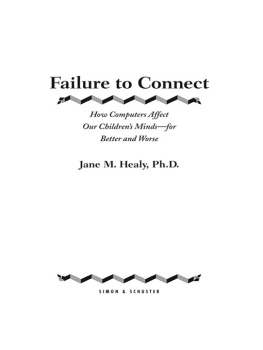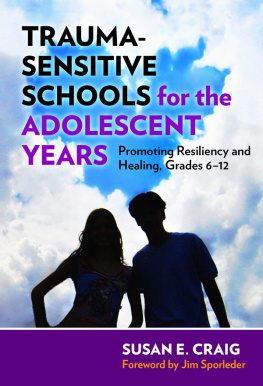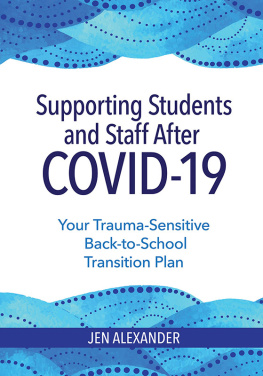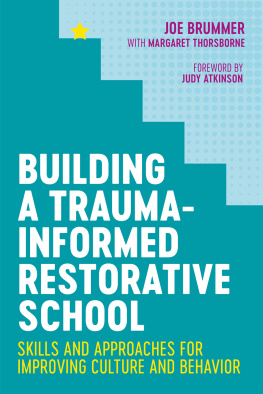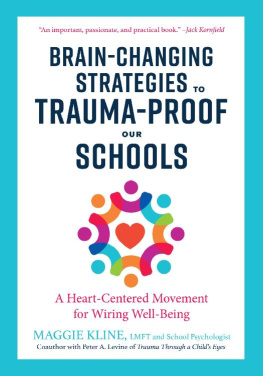Susan Craig - Trauma-Sensitive Schools: Learning Communities Transforming Childrens Lives, K–5
Here you can read online Susan Craig - Trauma-Sensitive Schools: Learning Communities Transforming Childrens Lives, K–5 full text of the book (entire story) in english for free. Download pdf and epub, get meaning, cover and reviews about this ebook. year: 2015, publisher: Teachers College Press, genre: Children. Description of the work, (preface) as well as reviews are available. Best literature library LitArk.com created for fans of good reading and offers a wide selection of genres:
Romance novel
Science fiction
Adventure
Detective
Science
History
Home and family
Prose
Art
Politics
Computer
Non-fiction
Religion
Business
Children
Humor
Choose a favorite category and find really read worthwhile books. Enjoy immersion in the world of imagination, feel the emotions of the characters or learn something new for yourself, make an fascinating discovery.
- Book:Trauma-Sensitive Schools: Learning Communities Transforming Childrens Lives, K–5
- Author:
- Publisher:Teachers College Press
- Genre:
- Year:2015
- Rating:4 / 5
- Favourites:Add to favourites
- Your mark:
Trauma-Sensitive Schools: Learning Communities Transforming Childrens Lives, K–5: summary, description and annotation
We offer to read an annotation, description, summary or preface (depends on what the author of the book "Trauma-Sensitive Schools: Learning Communities Transforming Childrens Lives, K–5" wrote himself). If you haven't found the necessary information about the book — write in the comments, we will try to find it.
Growing evidence supports the important relationship between trauma and academic failure. Along with the failure of zero tolerance policies to resolve issues of school safety and a new understanding of childrens disruptive behavior, educators are changing the way they view childrens academic and social problems. In response, the trauma-sensitive schools movement presents a new vision for promoting childrens success. This book introduces this promising approach and provides K5 education professionals with clear explanations of current research and dozens of practical, creative ideas to help them.
Integrating research on childrens neurodevelopment and educational best practices, this important book will build the capacity of teachers and school administrators to successfully manage the behavior of children with symptoms of complex developmental trauma.
Kudos! Susan Craig has done it again. After Reaching and Teaching Children Who Hurt, she has written a book that will help administrators and educators truly make schoolwide trauma sensitivity a regular part of the way their schools are run. A major contribution to education reform.
Susan Cole, director, Trauma and Learning Policy Initiative, Massachusetts Advocates for Children, and Harvard Law School.
Dr. Craigs message is clear that promoting self-reflection, self-regulation and integration gives traumatized children the chance at learning that theyre not getting in traditional approaches. And she bravely points out that its critical for teachers to recognize the toll that this emotional work can take and the need for self-care. Being mindful of both the importance of trauma sensitive systems and the enormity of the task of helping vulnerable children build resilience is so critical for everyone working with and caring for our children.
Julie Beem, MBA, Executive Director of the Attachment & Trauma Network, Inc.
Susan Craig: author's other books
Who wrote Trauma-Sensitive Schools: Learning Communities Transforming Childrens Lives, K–5? Find out the surname, the name of the author of the book and a list of all author's works by series.

